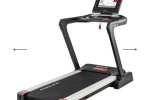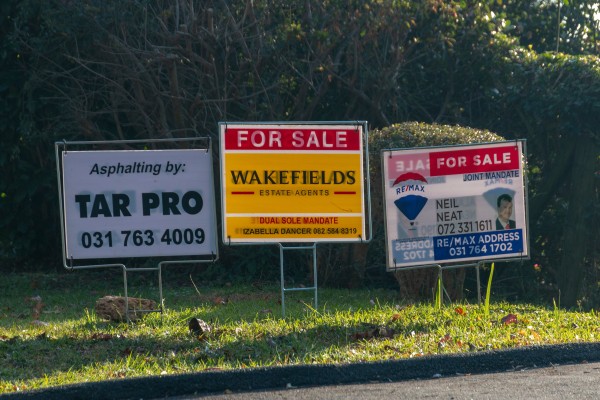The Voetstoots Clause: What to Know

Voetstoots may seem like an inherently South African term, but the word (and its implications) originate in Roman-Dutch law—which is still the basis of modern South African law. Voetstoots was a Dutch phrase that literally meant: “testing something by shoving it with one’s foot”.
It's your responsibility as the buyer to do the testing (or kicking) before purchasing. We’ve all at some stage wanted to kick something after a voetstoots purchase … (but before seems a bit cheeky).
Today, Voetstoots in English means buying something "as is". In other words, in the condition you find it. The clause dictates that it is the buyer's responsibility to test the item and make sure it is fit for the purpose for which it is intended.
Read on for a better understanding of the Voetstoots clause and all its implications.
Real Estate Law and Voetstoots
In real estate, most sale agreements feature a Voetstoots clause, where you, as the buyer, agree to accept the property in its present condition. In essence, this clause protects the seller against claims for damages associated with any defects on the property.
It can, however, backfire on the seller if it is discovered that certain defects were intentionally concealed. Voetstoots also must stand up to certain provisions in the Consumer Protection Act.
It’s important to note that the Voetstoots clause can be applied to all items in a seller-purchaser agreement. This includes cars—which we will get to later.
Voetstoots Clause example
Here’s an example of what a voetstoots clause could look like:
“The Purchaser acknowledges that they are buying the [property/vehicle] voetstoots, in its current state and condition at the time of signing this agreement, and have inspected the [property/vehicle] to their satisfaction. The Seller declares that to the best of their knowledge and belief, all the information furnished to the Purchaser regarding the [property/vehicle] is true and correct.
The Seller is not responsible for any defects, patent or latent, existing at the time of the sale, except where such defects were knowingly concealed or misrepresented by the Seller. The Purchaser, therefore, renounces any claims against the Seller based on any defects or conditions, known or unknown, patent or latent, that may exist at the time of purchase.”
Types of defects explained
- Patent defects: Defects that are obvious upfront, such as broken windows, visible cracks in the wall, leaking taps or rotting woodwork.
- Latent defects: Defects that might not be spotted during a reasonable inspection and may only become evident or problematic over time. Examples include rusting pipes, hidden water damage, and faulty geysers.
What it means for buyers and sellers
For sellers, the Voetstoots clause offers protection. The kicker here is that a seller cannot hide behind the voetstoots clause if they deliberately concealed a defect.
If the seller knew about a latent defect and did not disclose it to the buyer, the buyer can claim damages as this is tantamount to fraud.
That said, it can be difficult to prove that the seller was aware of the latent defect and intentionally failed to disclose it at the time of sale.
For buyers, the clause means you accept the property as seen, without recourse for future complaints. Understanding the types of defects—patent (visible) and latent (hidden)—is crucial. You might negotiate repairs for patent defects before purchase, but latent defects are a riskier challenge.
Protecting yourself as a buyer
If you've bought a property where the seller has tried to hide a defect—like painting over damp—you may have a foot to stand on in court. In South Africa, both case law and legislation are clear:
You can't use the voetstoots clause to dodge responsibility if the buyer discovers the problem and decides to claim damages.
This means that as a buyer, you have the right to either cancel the contract or sue the seller for a reduction in the selling price if you discover hidden defects. That's why it’s now common practice—and highly recommended—for both you and the seller to complete a disclosure form after thoroughly inspecting the property.
On this form, the seller will confirm that all the listed items provide full and proper disclosure of the property's condition. You can then use this form if any disputes arise over hidden defects later on.
Consumer Protection Act
The Consumer Protection Act (CPA) enhances your rights as a buyer, ensuring you receive goods fit for their intended use—though this mainly applies to commercial transactions.
This means that the CPA only applies to sales made in the ordinary course of business. Therefore, a property being sold by an owner is deemed a private sale, and not a business transaction.
In order to enjoy extra cover by the CPA, the purchase needs to be from a property developer, builder or investor. This means it’s even more important to take steps before purchasing anything voetstoots to try mitigate your risk.
Property Practitioners Act
Completing a disclosure form that lists all identified defects in a property post-inspection is not just advisable—it’s now a legal requirement under the recently enacted Property Practitioners Act (PPA).
This legislation offers significant protection for buyers by making the disclosure of property defects a binding obligation.
Under the PPA, all property practitioners are required to ensure that sellers fill out and sign these disclosure forms prior to accepting a mandate to sell the property. This mandatory disclosure serves to enhance transparency in property transactions and helps protect buyers from unforeseen defects that might otherwise be concealed.
By formalizing this process, the PPA aims to foster a fairer, more accountable real estate market where buyers can make informed decisions based on complete and accurate information about the property they intend to purchase.
Voetstoots in car sales: Navigating your rights and protections
As a buyer or seller, it’s crucial to understand that the Voetstoots clause applies broadly across various types of sales, not just in real estate transactions.
For movable items, like vehicles, the CPA significantly influences how this clause is applied, providing an additional layer of protection under certain conditions.
Dealership car sales and the CPA
Purchasing a car from a dealership brings several rights under the CPA, designed to safeguard consumers when a vehicle fails to meet the standards of quality and safety. If the car you purchase is faulty or unsafe, the CPA empowers you to:
-
Return the vehicle to the dealer without penalty, at the dealer’s risk and expense, within six months of delivery.
-
Opt for a full refund, request a replacement, or have the car repaired, depending on your preference and the specific circumstances.
This comprehensive protection mirrors the consumer rights available in property transactions, ensuring that car buyers receive fair treatment and recourse in case of defects.
Private voetstoots car sales: A cautionary note
However, it's important to note that private car sales do not fall under the same CPA protections as dealership sales. In these transactions, the Voetstoots clause may still apply, potentially leaving a buyer exposed if not careful. To safeguard your interests when engaging in a private car sale, consider the following steps:
-
Thoroughly review the sale agreement to understand all terms and conditions.
-
Seek legal advice to clarify any complex legal jargon or uncertain terms in the agreement.
-
Invest in a professional inspection of the vehicle to uncover any hidden defects before finalizing the purchase.
These proactive measures can help prevent future disputes and ensure that you are fully aware of the condition of the vehicle, providing peace of mind in your private car purchase.
Final thoughts: Empowering yourself against a bad Voetstoots sale
While Voetstoots agreements simplify transactions, you need to be vigilant and proactive. Whether you're buying a house or a car, equip yourself with knowledge and legal advice to shield you from potential pitfalls. Always ensure you thoroughly inspect and understand the legal documents you sign—turning the Voetstoots clause from a potential threat into a transparent, manageable aspect of your purchase.
What do our customers say?





























